Sharing Good Practice Improving Quality & Raising Standards
• Page 2 - 3 Introduction
• Page 4 - 7 Schools
• Page 8 - 11 English
• Page 12 - 13 Assessment
• Page 14 - 15 Maths
• Page 16 - 17 Science
• Page 18 - 19 Art, Design & Technology
• Page 20 - 21 Computing
• Page 22 - 23 PHSE
• Page 24 - 25 History & Geography
• Page 26 RE
• Page 27 Music
• Page 28 EAL Support
• Page 29 PE
• Page 30 - 32 SEND
• Page 33 - 34 EYFS
• Page 35 Forest School
• Page 36 - 39 Schools Directory
The Orchard Community Trust
• Introduction from the Senior Executive Leader
I am pleased to welcome you to the Orchard Community Trust and to this brochure. Our Multi Academy Trust (MAT) consists of 7 founder member schools and one associate member school in the City of Stoke on Trent. All of the schools are in the City of Stoke on Trent. They consist of 5 Primary Schools and 2 Special Schools, with the associate school also being a Special School. Our schools are both varied and diverse in their make-up and welcome children and young people from all backgrounds.
We are a fully inclusive MAT that works hard to ensure the needs of all pupils are successfully met. Prior to academy conversion, the 8 schools have worked very productively together for over 2 years as a network and have established a very positive relationship with each other, which brings both challenge and support to the MAT. They have been instrumental, together with the Trustees, in shaping the MAT, its vision, philosophy and policies. Children and young people lie at the heart of all they do.
The Orchard Community Trust Board’s vision is to develop a high performing Multi Academy Trust that delivers the very best educational experience for pupils from 3 - 19. The Trust aims to effectively support and improve its Academies across a diverse geographical area of Stoke on Trent, with a clear focus on raising standards, encouraging innovation and collaboration, sharing best practice, and strengthening the ethos of the Trust to ensure that we have a positive impact on all the young people within the Trust.
Sharing Good Practice • Improving Quality & Raising Standards 2
Contents
Sharing Good Practice Improving Quality & Raising Standards
Our vision is that the Academies, supported by the Trust, will provide an environment which is welcoming, caring, calm, well led and managed and purposeful. Our intension is to stretch our children and young people academically, support them pastorally and help them develop socially and spiritually. This will enable them to progress successfully and with resilience and aspiration to their next phase of learning, training and/or employment.
The Orchard Community Trust MAT is supported by a strong Trust Board who have a diverse range of skills and experience and who provide the effective support and challenge required to ensure that we build on our track record of excellence. The Board provides strategic challenge and partnerships in order to improve quality, share best practice and operate effectively and efficiently. We have a cost-effective organisation and a business model that delivers efficiency, so that all our students benefit from enhanced resources created by effective economies of scale. We aim to ensure that as much as possible of our income as a MAT is directed towards the children and young people and the education we provide in order to meet all of their diverse needs.
It will allow each of our schools to quickly identify where the expertise lies and access support form that school in an area that they feel they need to develop. This will promote inert-school working, collaboration, coaching, modelling and the sharing of best practice within the Trust and eventually beyond.
The brochure will be added to over time to ensure all of our developing expertise is fully reflected in its contents.
Details of our 7 schools are as follows: -
Abbey Hulton Primary School
– a single form entry Primary School School Road Abbey Hulton Stoke on Trent ST2 8BS
Telephone: 01782 235551 admin@abbeyhultonprimary.org.uk
Etruscan Primary School
– a 2 form entry Primary School
Dundee Road Stoke on Trent ST1 4BS
Telephone-: 01782 235711 office@etruscan.org.uk
Forest Park Primary School – a 2 form entry Primary School
Woodall Street Hanley Stoke on Trent ST1 5ED
Telephone: 01782 234979 admin@forestpark.org.uk
Kemball School –a Special School
Beaconsfield Drive Blurton Stoke on Trent ST3 3JD
Telephone: 01782 883120 kemball@kemballschool.co.uk
Headteacher : Mrs. Lesley Brookes
Oakhill Primary School
– a 2 form entry Primary School
• Purpose of this brochure
The purpose of this brochure is to highlight and celebrate within the Trust the huge and varied strengths and expertise that each of our schools have. We have a range of very talented staff who have skills, knowledge and understanding to enable them to develop a high quality of education in our schools for all children and young people.
Rookery Lane Oakhill Stoke on Trent ST4 5NS
Telephone: 01782 235238 office@oakhillprimaryschool.org.uk
Executive Headteacher: Mrs. Michelle Johnstone Head of School: Ms. Sandra Clarke
St Mark’s CE Primary School
– a 2 form entry Primary School
Headteacher: Miss. Louise Irving
Headteacher: Mrs. Lisa Hughes
Watermill School – a Special School
Wood Terrace Shelton Stoke on Trent ST1 4LR Main Site
Headteacher: Mrs. Joanna Leach
Telephone: 01782 234411 office@stmarkssch.org
Nursery Class
Turnhurst Road Stoke on Trent ST6 6JZ
Telephone: 01782 237125 nursery@stmarkssch.org
Executive Head Teacher: Mrs. Michelle Johnstone Head of School: Mr. Lee Nicholls
Telephone: 01782 883737 admin@watermillschool.co.uk
Executive Headteacher Mr. Jonathon May

Sharing Good Practice • Improving Quality & Raising Standards 3
Rob Johnstone - Senior Executive Leader - Orchard Community Trust
Abbey Hulton Primary School
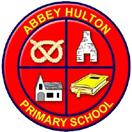
Etruscan
Primary School
Abbey Hulton is single form entry school, serving the Abbey Hulton community. The school is situated in an area of high deprivation and the percentage of children eligible for Pupil Premium Funding is considerably higher than the national. The school provides a food bank and offers a low cost breakfast club to support families. There are significant safeguarding needs in the community with many families receiving intensive school support as well as Social Care intervention. The percentage of SEND pupils is above the national average and the school runs many interventions, including a Nurture Group for KS1 and KS2 children. The percentage of Ethnic Minority and EAL pupils is low but has gradually risen over the past few years.
At Abbey Hulton, we are fully committed to ensuring that our school develops life-long and successful learners through our ‘ ASPIRE’ values of Awareness, Success, Perseverance, Independence, Respect and Enjoyment. There is a strong nurturing ethos and expectations of pupil behaviour and attitudes are high. Pupils are encouraged to develop a growth mindset as part of their learning and experience in our school.
Abbey Hulton supports and promotes positive mental wellbeing and works in partnership with the NHS on the Trailblazer Project.
Etruscan Primary School is an inclusive school at the heart of the community. We are a larger than average primary school with 465 children from Nursery to Year 6. Our ‘Reach’ values of Respect, Enjoyment, Achievement, Collaboration and Honesty are at the centre of everything we do.

We have a nurturing approach to ensure that all our children can access our exciting and creative Learning Challenge Curriculum whilst also developing key skills in English, maths, science and computing. Our spiritual, moral, social and cultural provision is very strong and we encourage every child to ‘Reach for the Stars’.
The school is situated in an area of high deprivation in the centre of Stoke on Trent. We have children from a wide variety of backgrounds, cultures and religions, speaking many different languages. This means we have a global school family who celebrate our similarities and differences and who are proud of our school.
Contact: Charlotte Pearse (Deputy Headteacher) cpearse3@abbeyhultonprimary.org.uk
Contact: Karla Thorley (Assistant Headteacher) kthorley@etruscan.org.uk
Sharing Good Practice • Improving Quality & Raising Standards 4
Forest Park Primary School
Kemball School
Forest Park Primary School is a culturally diverse, larger than average two-form entry school, with approximately 466 pupils on roll from Nursery - Year 6. The school is located in an area of Stoke On Trent which is one of the highest ranked on the deprivation index, making our school population very vulnerable. The school has a higher than average number of Pupil Premium pupils.
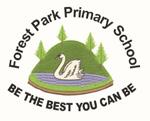
The school population includes 18 ethnic groups; with 35 different languages spoken by the families. Our core purpose is to improve the prospects of our pupils by providing a high quality education which meets the needs of each individual child, allowing them to reach their full potential.
We aim to build the skills, knowledge and positive attitudes necessary to help all of our pupils to become responsible, respectful and tolerant British citizens of the future. The school firmly puts the needs of its pupils first-striving to ensure that all pupils at Forest Park feel happy and safe. This is reflected in its design of the curriculum, which is designed with knowledge at its heart, and aims to develop children’s understanding of the world around them. The Forest Park Primary curriculum is customised to meet the local needs of its learners, achieving this through the celebrations of the heritage of the pupils and by building a Cultural Capital to help prepare the children for the next stage of their education.
Contact: Sherin Vorajee (Assistant Headteacher) svorajee@forestpark.org.uk
Kemball relocated into a purpose built special school in September 2013 with 57 pupils. Historically, all pupils had severe learning difficulties or profound, multiple learning difficulties.
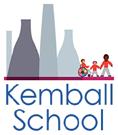
There is now a growing number of pupils with moderate difficulties. From September 2021 we have 226 students aged 3-19 years who present with an extremely diverse range of needs, PMLD, SLD, MLD. Many of the pupils that attend Kemball have complex medical needs. We currently have 22 classes, 6 of which cater for pupils who have PMLD. Our post 16 provision is for pupils who have complex needs.
Pupils are grouped according to those working at subject specific levels and those working at non subject specific levels of attainment. Currently KS3/KS4 (discounting our PMLD population) are predominantly, what we consider to be our more able learners. Last short Ofsted inspection took place on 18th October 2017 judged that the school continued to be good. Outreach work is delivered in the form of specific, specialist support for mainstreams schools.
Contact: Helen Smith (Deputy Headteacher) hsmith1@kemballschool.co.uk
Sharing Good Practice • Improving Quality & Raising Standards 5
Oakhill Primary School St Mark’s CE Primary School

Oakhill Primary School is a two-form entry, 3-11 school with 407 pupils on roll, including Nursery. The percentage of pupils eligible for free school meals is 44%. 19% of pupils are identified as requiring SEND support, 20% are from ethnic minority backgrounds and 14% of pupils have English as a second language.
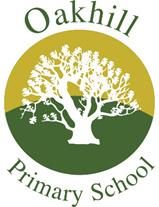
Oakhill is a nurturing school, which develops the whole child; we want every child to thrive and achieve academically and personally. We have a broad and balanced curriculum which is accessible to all. The curriculum exploits the use of wider opportunities to enrich children’s learning and to support their academic and personal development. Forest Schools, Now Press Play technology, visits and visitors are all used effectively to support learning, to enhance the curriculum and to engage children in order to raise aspirations.
We have a dedicated pupil and family support team who support children and their families to help to overcome barriers to learning. In addition to this, staff use emotion coaching to help children to selfregulate their emotional and behavioral well-being.
St Mark’s is a nurturing and inclusive Church of England Primary School welcoming children of all faiths and those with no faith. The school family consists of many different ethnicities, languages and cultures, all of which are uniquely celebrated. The school’s mission statement of ‘Loving to Learn, Learning to Love’ encompasses the school’s moral purpose in ensuring that all children respect one another, their education and their community.
The school values are at the heart of all that we do and are based on RESPECT. The RESPECT acronym stands for: responsibility, equality, spirituality, perseverance, enthusiasm, commitment and trust. These values are referred to on a daily basis to encourage, praise and develop our pupils as role models and good citizens.
St Mark’s provides high quality teaching and learning for all students including those who speak English as an additional language. The school has carefully designed an enriching question based curriculum, which aims to develop and build upon children’s prior knowledge and learning over time. This curriculum meets the needs of all learners, who arrive at St Mark’s with a variety of life experiences.
The school is a large inner city primary school with 465 pupils on roll, ranging from nursery to year 6. The nursery class is situated within Thomas Boughey Children’s Centre, approximately one mile from the main primary school site.
Contact: Katie Hawthorne (Assistant Headteacher KS2 Lead) kharris@oakhillprimaryschool.org.uk
Contact: Victoria Bradbury (Assistant Headteacher) vbradbury@stmarkssch.org
Sharing Good Practice • Improving Quality & Raising Standards 6
Watermill School
Watermill School has been carefully designed to provide for a wide range of pupils’ needs to be addressed through educational, social, physical and emotional growth for the age range 3 to 16.
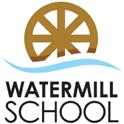
This includes a wide range of specialist classrooms, halls, outdoor spaces and a hydrotherapy pool. We continue to prepare our pupils for the wider world by offering part time college courses and accreditations that are relevant to our pupils’ futures whilst ensuring we give the younger pupils the building blocks to set them on the right track for a successful life when they have left Watermill School behind.
All children have an Education Health and Care Plan. The range of needs includes Moderate, Severe, Physical and Multiple Learning Difficulties, Complex Behaviours and Autism. Our specialist INSPIRE Pupil Referral Unit provides primary aged pupils with behavioural difficulties an opportunity to develop the skills needed to return to mainstream schools or to be assessed to move on to other special school provision.
We have 220 children on roll. Children are educated within 5 distinct Learning Pathways; EYFS, Sensory, Communication, Primary and Secondary. We operate a flexible system and pupils are grouped according to need rather than by year group.

Contact:
Emma Harrington (Deputy Headteacher) eharrington@watermillschool.co.uk
Sharing Good Practice • Improving Quality & Raising Standards 7
English
Abbey Hulton Primary School
• Switch On Reading
Switch-on Reading is a 20 minute, daily, trained-adult led, personalised reading intervention, for children who are vulnerable or underachieving in reading across the primary age range.
It is intended to be run over a 10 week period with the expectation of at least double age related progress. The aim of the intervention is that children are able to participate more fully in the classroom into becoming more confident, active and independent readers, who can use a range of effective reading strategies in order to achieve their full literacy potential.

• Differentiated Texts
Throughout each unit, the links between reading (Whole Class Differentiated Texts) and writing are made explicit – we read as writers and we write as readers. Pupils are immersed in a variety of different text types through the integration of GPS and comprehension activities.
Learning about language in the context of a high quality text, rather than a series of discrete grammar exercises on grammar and punctuation, enables our children
to see how language really works and how writers have made specific choices. Pupils are encouraged to read with a writerly eye and curiosity to enable them to digest and internalise that particular style. They also participate in a variety of drama activities to immerse and engage them in the text so that they absorb the language, phrasing, and vocabulary that supports their cognitive development.
The progress throughout each unit of work shows the transition between reading as writers (focusing on structure, characterisation, and language features etc…) to writing as readers (word play, describing, composition, planning, editing, revising etc…).
• Guided Reading Through Reading Gems
At Abbey Hulton, we believe the content domains are a list of skills needed to become a fluent and resilient reader.
The teaching of reading should include more than awareness of the skills to get through a reading test; the application of those skills are fundamental to the understanding of what is being read.The reading domains are referred to in child friendly ways called Reading Gems.
Using this approach, we choose one domain (retrieval, define, inference, prediction etc) per week to explicitly teach and focus upon, allowing modelling by the teacher and chances to apply throughout the week.
Sharing Good Practice • Improving Quality & Raising Standards 8
Etruscan Primary School
• Talk For Writing
Writing is taught in a structured way of teaching writing from Nursery up to Year 6, following Pie Corbett’s ‘Talk for Writing’ process. Talk for Writing involves making explicit the processes and thinking involved in the writing process so that ultimately they can be internalised and applied by children in their own writing. The development of key vocabulary is supported throughout the process. Talk for Writing is embedded in every writing lesson throughout the school.
additional language make speedy progress when learning to read with Read Write Inc.
All children are grouped according to their reading progress and re-assessed every half term – they learn sounds and practise reading every day at exactly the right level. Children are taught by staff who have had full and comprehensive training. We also use a coaching model to support staff, which gives weekly coaching sessions to staff members ensuring we are all using the same systematic approach to deliver high quality phonics sessions to every child at Forest Park. We invest a lot of time and resources into teaching reading as we believe that reading is fundamental in unlocking the wider world to our children.
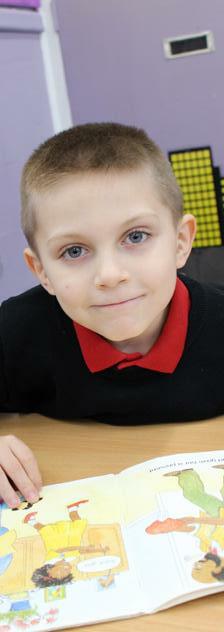
We believe that developing a love of reading is key to ensuring our children become lifelong readers. We have a well-stocked library that children have the opportunity to visit weekly and our school librarians are fantastic at keeping this running smoothly. Each class also has a class reading area and all classes from nursery to year 6 have some time dedicated each day to reading for pleasure. We also partake in Stoke 100 reads in partnership with our local library. This helps to direct children towards quality texts they should read. The aim is, they read all 100 before leaving primary school.
Forest Park Primary School
For phonics at Forest Park, we follow the Read Write Inc programme. Children learn the English alphabetic code: first they learn one way to read the 40+ sounds and blend these sounds into words, then learn to read the same sounds with alternative graphemes. They continue on the programme until they can confidently apply these skills into their reading. We also include our EAL learners (where necessary) on our RWI programme as we find that children learning English as an
At Forest Park, we teach English reading and writing in years 2-6 through text-based units. We endeavour to use books written by authors from BAME backgrounds to represent the rich cultural diversity of our school. These books are used alongside high quality non-fiction to deliver whole class guided reading through the VIPERS method. This method of teaching reading focuses on the comprehension aspect of reading through the key areas of vocabulary, inference, prediction, explanation, retrieval, summarise and sequence.
We aim to create well-rounded writers who can write for a wide range of audiences and purposes. We teach a progressive range of text types covering the areas of entertain, inform, persuade, discuss, instruct and explain through our text-based unit. We use trips, visitors, drama and practical activities to the fullest to provide our children with real-life experience to enrich their writing and create great writers.
Sharing Good Practice • Improving Quality & Raising Standards 9
English
Kemball School
• English Phonics
Come and see how English is delivered in a special school setting with a particular focus on how phonics is delivered through a structured, multisensory approach. Observe how we adapt a structured phonics programme to meet the varied needs of our pupils through sensory phonics and a range of variations to teach and embed the early stages of reading and writing. Through observing a range of abilities, you will see how we integrate phonics into the wider curriculum to develop children’s independence in applying their skills of reading and writing.
• Makaton

Makaton is a language programme using signs and symbols to support communication. It is designed to support spoken language and the signs and symbols are used with speech, in spoke word order. We deliver training sessions through the stages and can share materials and resources that we use within the school setting. In addition to the training, you also have the opportunity to see Makaton being used within the school and look through resources to see how this is incorporated into lessons.
• Sensory Story
Come and observe the engagement and Multisensory pathway departments to see how EHCP targets and individualised targets are taught and delivered through the sensory story to meet individual pupil needs.
• Communication and Alternative Communication
If you are new to supporting a pupil(s) with a communication need, then come to Kemball and see how we support pupils with a range of communication aids. Examples include PECS, PODD, Communication books, Makaton, Visual timetable, Vocabulary boards, Switches.
In week 2, children will be exposed to another novel, or extracts of, nonfiction texts and poetry. Reading lesson objectives are taken from the Oakhill Reading Progression document which ensures that objectives are progressive.
Pupils are taught key reading skills during these lessons which include skimming, scanning, authorial choice, critical comparisons etc and they are exposed to a wide variety of texts.
Oakhill Primary School
• Whole Class Reading
Whole Class Reading sessions take place from Year 2-6 three times per week. These sessions are planned on a two-week cycle. During week 1, children work on the novel that is being used as a stimulus in their writing lessons.
Sharing Good Practice • Improving Quality & Raising Standards 10
• Opportunities for Speaking and Listening
At Oakhill Primary School, we pride ourselves on furthering the aspirations of children. One way we do this is through our OSAL award - Opportunities for Speaking and Listening. In Key Stage 2, all children participate in an assessment designed to build confidence and prepare them for life in High School and beyond. The children prepare a presentation suited to a particular title, such as “Who inspires me?” or “What interests me?”. This is delivered to the award assessor and a small group of children. The children also perform a poetry recital and a passage of storytelling. The children receive a report sheet and a certificate following their assessment. The OSAL award has helped our children improve their communication skills and increase their confidence.
• Phonics
Phonics is taught following the guidance in Letters and Sounds. Children receive daily phonics sessions that allow them the opportunity to re-visit previous learning, and practise and apply new learning in a variety of fun, engaging and interactive ways.




St Mark’s Primary School and Etruscan Primary School
• Phonics and Spelling
Both schools teach phonics using the Read Write Inc. phonics programme designed by Ruth Miskin. During phonics lessons, children are taught to read accurately and fluently with good comprehension. They learn to form each letter, spell correctly and compose their ideas step-by-step. This approach has led to pleasing results in the year 1 phonics check in recent years.
Spelling is taught using the Read Write Inc. spelling programme. This is for children in years 2 to 6 who can read accurately, with increasing speed. Children have 15 minutes of daily teaching where they develop confident spelling techniques. The teaching of spelling develops children’s knowledge of word families, how suffixes impact on root words, as well as mnemonics for children to remember the trickiest of spellings.
Sharing Good Practice • Improving Quality & Raising Standards 11
Assessment
Forest Park Primary School
At Forest Park, we use termly summative assessments from Rising Stars GAPS, NTS Reading and Maths assessments to provide data which is analysed using Insight. These assessments allow us to identify gaps in children’s learning for each cohort and enable teachers to address these gaps in their teaching. Writing is assessed using teacher judgements against year group expectations. To confirm these judgements, each cohort takes part in a national moderation with No More Marking once a year.
It prompts student-centered reflection on how to increase the learner’s engagement leading to deep learning.
Engagement is multi-dimensional, and encompasses awareness, curiosity, investigational, discovery, anticipation, persistance and initiation. By focusing on the five indicators of engagement, educators can ask themselves questions such as “how can I change the learning activity that stimulates her curiosity?” and “what can I change about this experience to encourage him to persist?”.
Teachers are also able to easily identify how well pupils are progressing from previous assessment points from any time in their school career. Senior leaders are able to use the assessment systems to set realistic targets as well as being able to have in depth discussions about the children in each class as the assessment information is clear, concise and all stored on the same system. The systems also ensure that subject leaders have a clearer understanding about the standards in their subject in each class, year group and for the whole school.


Kemball School
• Engagement Profile and Scale
Engagement is the single best predictor of successful learning for children with learning difficulties. Without engagement, there is no deep learning, effective teaching, meaningful outcome, real attainment or quality progress. The engagement profile and scale is a classroom tool that allows educators to focus on the engagement as a learner and create personalized learning pathways.
Oakhill Primary School
Clear, simple to use, assessment systems have been bought in and then adapted and developed for the whole school (NurseryYear 6). These are used, first and foremost by teachers, to be able to identify how their own pupils are performing overall at set assessment points and then more specifically, how they are performing in the different strands of reading, writing and maths. In the case of EYFS, teachers are able to identify specific strengths and areas for development for individual children.
Sharing Good Practice • Improving Quality & Raising Standards 12
Watermill School
• Stepping Stones Assessment Tool
Stepping Stones is an assessment tool we have developed in-house. The assessment tool is divided up into five areas of development; Communication, Cognition, Understanding the World and Technology, Physical Development and PSE. There are four levels of assessment.
This tool is used to track progress for children who cannot access an adapted national curriculum (the Learning Pathways Curriculum); who have significant and severe learning disabilities and medical needs. Examples of assessment criteria range from Communication.1: ‘Notice stimuli? Turns towards a familiar sound’ to Communication.4: ‘Exerts autonomy in a variety of contexts e.g. the pupil will initiate an action to achieve a desired result’. Pupils who are working beyond Stepping Stone Level 4 access an adapted national curriculum through our Communication or Primary Pathway and attainment and progress is recorded via Clifton Emag.
• Clifton Emag
Our Teachers and Learning Support Practitioners have designed a curriculum that is heavily adapted from the National Curriculum and have developed a raft of strategies and approaches to working with children who fall well below the expected standard and age related expectations.
Clifton Emag is an online software package we use to track pupil progress for pupils who are working above Stepping Stone Level 4. Progress Points 4 to 12 set out the key assessment points for English and mathematics across all strands. This allows teachers and subjects leaders to track pupil progress, identify and work towards filling the gaps. Teachers use this tool to assist planning. We use Clifton Emag to track individual, class and whole school progress.
The key assessment descriptors within each progress point were constructed by teachers and informed by the National Curriculum, B Squared and Performance Scales to ensure that the very small steps of learning can be tracked.

Sharing Good Practice • Improving Quality & Raising Standards 13
Maths
Abbey Hulton Primary School
• Calculation Policy
At Abbey Hulton Primary we have looked closely at the progression of skills in mathematics starting from the children beginning at the school in Nursery and moving through the school up to year 6. As a result, we have created a new calculation policy that focuses on using the concrete, pictorial and abstract approach and allows each year to build on the skills taught in the previous year.
Forest Park Primary School
At Forest Park we have developed our pedagogical understanding that underpins the mastery approach to maths. Using a variety of resources, we have designed our curriculum based upon the needs of our children. Teachers plan small steps of learning from children’s starting points and, alongside the use of the CPA (concrete, pictorial and abstract) model, ensure key concepts are secure and deeply understood. Teachers knowledge of variation provides challenge for all, whilst developing pupil’s fluency, reasoning and problem solving skills.
represent different numbers. Numicon is multi-sensory, children can touch as well as see the numbers. Kemball hosts three open mornings a year as part of the advocate programme, facilitated by the Oxford University Press. Observations of lessons can also be arranged to observe multi-sensory approaches and share good practice.
abstract methodology is implemented effectively to support and extend pupils’ learning. Arithmetic sessions are completed daily to help aid children’s fluency in calculation.
Oakhill Primary School
This policy includes key vocabulary to be taught as well as the key skills to be taught. The calculation policy is used alongside our long term plan that is based on the White Rose long term plans. Each teacher is able to use the calculation policy and long term plans to tailor lessons that are suitable and engaging for their class. We have recently purchased new equipment to use in each class to allow a mastery approach.
St Mark’s CE Primary School and Etruscan Primary School
• Singaporean Mathematics
Both Etruscan and St Mark’s follow a Singaporean mathematical approach from years 1 to 5 using the Maths No Problem scheme of work. Singaporean maths is a mastery approach to the teaching Kemball
School
• Numicon
We pride ourselves in being an Advocate School for Numicon. Numicon is a teaching resource designed to help children visualise numbers. From this visual picture they can see how we can add, subtract, multiply and divide numbers and see the relationships between these. The different coloured Numicon shapes
• Maths Mastery
Our long term maths curriculum is based on the White Rose long term plans, which have been carefully adapted to the needs of the children in our school. We use resources made in-house and from a variety of publishers to ensure that children are challenged and exposed to a variety of fluency, problem solving and reasoning questions on a daily basis.
To support children’s understanding across the maths curriculum, and in particular in number, we have a large range of physical mathematical resources to support children to ensure that the concrete, pictorial and

Sharing Good Practice • Improving Quality & Raising Standards 14
of mathematics and is at the forefront of current mathematical research and attainment.



Singaporean mathematics use concrete, pictorial and abstract techniques to help children to understand and internalise the mathematical operations they are using, securing their understanding of a problem and develop their individual reasoning skills.
• Assertive Mentoring
Alongside Singaporean Mathematics, all children in Key Stage 1 and Key Stage 2 are assessed and taught using the Assertive Mentoring system. The key concept of this system is to identify and close the gaps in children’s knowledge. The system develops mathematical fluency and deepens children’s understanding of key concepts.
Sharing Good Practice • Improving Quality & Raising Standards 15
Science
Abbey Hulton Primary School
At Abbey Hulton Primary School you are welcome to come and see how science is taught in our setting. Our curriculum is progressive and ensures coverage of all National Curriculum objectives, designed to meet the needs of our pupils. We begin in Early Years where children begin to develop skills in observation, prediction, discussion and critical thinking.
These are developed as children move through each key stage as well as children developing their scientific subject knowledge. We have been lucky to have our governor, a science specialist, assist in upper key stage 2 for the last two years, looking at building the working scientifically skills into science. As a result, our children are becoming more confident in the core working scientifically skills.
Forest Park Primary School
At Forest Park, our science curriculum aims to develop creative, curious and independent scientists who have the knowledge, skills, drive and passion to ‘SPARKLE’ and adapt in an ever-changing world. Our main objective is to create pupils that can question and query their observations of the world around them and develop their own understanding. Within this, we strive to build our science capital through encouraging pupils to challenge stereotypes and educate them about the full range of opportunities open to them and to raise their aspirations for their future.
• We believe great science learning occurs when:
1. Learning is purposeful, developing an understanding of the world around us and we understand how knowledge and skills are linked to other areas.
2. Children are encouraged to be curious, ask questions. They are interested in finding out more and sharing what they know.
3. Children take an active role in scientific enquiry, discover through hands-on investigations and are independent in making decisions.
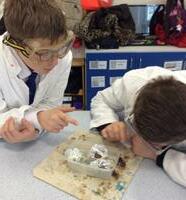
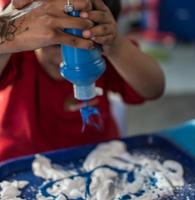
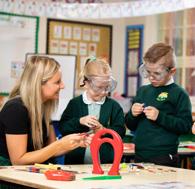
4. Key knowledge and vocabulary are revisited regularly to promote long term learning.
5. Scientific skills are built upon to ensure progression in each stage of learning.
6. New learning is exciting, challenging and builds on existing knowledge to deepen understanding.
7. Children can make connections with what they are learning and real life context deepening their understanding of science, today and for the future.
8. The teaching of science inspires pupils through a range of positive role models to raise future aspirations.
Oakhill Primary School
The science curriculum at Oakhill has been designed to show clear progression with science objectives, knowledge and enquiry skills. All unit plans display prior knowledge, next knowledge and key knowledge to be learnt over the course of the unit. All lessons have a revisit/ review element to ensure that knowledge and understanding is recalled frequently, helping children to build schema.
Sharing Good Practice • Improving Quality & Raising Standards 16
Our science lessons are as practical as possible and the teacher takes on the role of facilitator, helping children to find out for themselves through reading, experimentation, discussion and questioning. The 5 lines of scientific enquiry are clearly planned for to ensure that children are exposed to a variety of enquiry based activities and we look at numerous scientists over the course of each year.
Watermill School
Watermill School has a specialist science laboratory and a specialist science teacher. Please contact us if you would like to discuss accessing this space and specialist equipment or would like to work together on science projects or develop scientific enquiry workshops. The space can accommodate a maximum of 15 pupils.

Sharing Good Practice • Improving Quality & Raising Standards 17
Abbey Hulton Primary School
• Art and Design
At Abbey Hulton Primary School you are welcome to come and see how Art and Design is taught in our setting. Our curriculum begins in Early Years exploring colour, brush handling, creating patterns and textures in our artwork. We then progress through each year group and key stage developing our artistic ability and mastering our craft in textile, sculpture, drawing or painting. Our children have access to a variety of materials and equipment. We are happy to share and try to integrate artwork into many aspects of the curriculum and displays around school. Should you feel uncertain about teaching any techniques related to Art and Design, we have a fantastic ‘Teacher’s Tool Book’ you can access from our school website or via our subject leader which provides video tutorials on techniques to be used in class, a list of equipment needed and handy teaching tips with vocabulary links.
• Design and Technology
Take a look on our school website at our ‘Teacher Tool Book’ for Design and Technology. This publication details everything you need to know when
Art, Design and Technology
teaching Design and Technology in your setting, from mechanical systems to cooking techniques. Inside, you will find handy website links to support your teaching of Design and Technology alongside curriculum progression and supporting documents when planning cooking sessions with your class.
At Abbey Hulton Primary School, Design and Technology takes place across all year groups and subjects. We have recently started to build a bank of STEM activities that can be used in classrooms for early finishers to unleash their inner engineer or designer and encourage critical thinking and decision-making.
Art allows children to explore and encourages visual thinking and can make them better observers of detail in the world around them. In the context of our school, art allows our children to explore things they may not otherwise be exposed to thus broadening their minds and ways of thinking.



A child’s artwork has worth in its own right, it is not measured or judged by others as right or wrong. Art gives a child autonomy over their own work and the authority to say what they have created, what it communicates and ultimately builds up their confidence and self-esteem. At Forest Park, all children are artists.
Forest Park Primary School
Art teaching at Forest Park ensures all children have access to a broad and balanced curriculum. We ensure that our community is considered within the art curriculum by teaching children about a range of artists, styles and develop children’s lifelong artistic skills. With access to a wide range of resources in school and locally, we provide children with exciting opportunities both inside and outside of school. Our children can be as creative as they wish!
At Forest Park, design and technology (D&T) is taught every other half term, opposite art. The aim of the D&T curriculum is to ensure that all children have wide experiences that are built upon across the year groups and have a good understanding of how to plan, design, make and evaluate a product. Each of these areas has an equal importance when teaching D&T and therefore, across each year, each project will be taught with a focus on one specific area. Each year group completes three projects across the academic year. These have been created around the national curriculum requirements for each year group.
Sharing Good Practice • Improving Quality & Raising Standards 18
Children are given the opportunity to present their work in their own style within their creative books. They select the work they would like to include in their presentation. Children are keen to show off what they have learned and produced within each project, in their own unique style.
Watermill School
Watermill School has an Art, Design & Technology classroom and a specialist Art & Design teacher. The room has a range of specialist D&T resources and tools, alongside two potter’s wheels and a kiln. The room can take a maximum of 12 children. We cover all aspects of art and design, however, the main strengths of our subject specialist are around ceramics and printmaking.
Oakhill Primary School
The art and design technology curriculums at Oakhill are bespoke, progressive and ensure coverage of all National Curriculum objectives, designed to meet the needs of our pupils. All unit plans display prior knowledge, next knowledge and key knowledge to be learnt over the course of the unit.

Most lessons have a revisit/review element to ensure that knowledge and understanding is recalled frequently, helping children to build schema. In DT from Year 1, pupils are taught woodwork, textiles, mechanisms and cookery, where knowledge and understanding of food and diet is also taught. Where possible, these units do link to other areas of the curriculum. In art, pupils cover six units per year, each focusing on an artist. During these units, pupils will cover printing, painting, textiles, 3D, sculpture and drawing.
The Art & Design curriculum focuses on drawing and painting, printmaking, ceramics, textiles and sculpture. Drawing is a golden thread that runs throughout each unit of work; through sketching and designing across the art disciplines. Looking at the work of artists, crafts-people and art from different cultures in an integral part of our curriculum offer and often sets the context for each unit of work across all learning pathways. Within the ceramics discipline we teach a range of hand-building, throwing and glazing skills and processes. Within the area of printmaking we teach a range of skills and techniques including collagraph, monotype, poly-tile, lino-cut and silk-screen printing processes.
Please get in touch if you would like to discuss curriculum development and assessment, art workshops for pupils or for staff CPD or to access the facilities including the Art & DT room or the kiln.
Sharing Good Practice • Improving Quality & Raising Standards 19
Forest Park Primary School
The vision that Forest Park creates for Computing is to help our children develop their IT skills that they will need for their future such as for the work they will do in high school, college and in their careers.


Our aim is to help them to become independent, confident and knowledgeable with their skills in Computing, which will be beneficial as it is widely used in everyday life when they leave Primary school. It is essential for them to develop these skills in Primary, as this is where they will acquire basic knowledge with lots of scaffold and support that they will later build in complexity.
Computing lessons are carried out weekly in our well-resourced Computing room, which is where our children login to a website called Purple Mash. This scheme of work that we follow introduces some basic skills that will help them with using Microsoft Office programs such as Word, Excel and PowerPoint. It offers a range of stimulating activities, which are differentiated to support and push all of our learners. We also have other opportunities in school to enhance children’s Computing skills as the children often use iPad’s in class as a research tool
Computing
for their learning and even to take part in whole class interactive quizzes using websites like Kahoot. This website allows teachers an opportunity to use Computing as an assessment tool to see what the children know and may need to work on and helps to enhance the children’s learning from their Knowledge Organisers.
For these extra Computing activities, which the children show great enthusiasm in, our school recognises the importance of modelling and how we use technology to ensure we are highlighting how to use the internet safely and sensibly when taking responsibility for their learning.
Sharing Good Practice • Improving Quality & Raising Standards 20
Kemball School
• Using Switches
Come in to see a variety of switches including Powerlinks, Big Macks and sentence strips among others which assist children in taking control of their environments, along with accessible mounts so that they can be personalised for all.
• Makey Makey
Makey Makey’s are an effective tool in both understanding electricity and in developing computational skills. These great little devices can make anything into a keyboard and are hugely motivating to all.
Oakhill Primary School
Focusing on what we believe our children need for the next phase of their educational journey and following the national curriculum requirements, we have designed a computing curriculum to suit the needs of all. From Years 1-6 we teach children key skills including touch typing, emailing, Microsoft Office and Coding. In addition to this, children will learn about computer networks.
Coding begins with the use of BeeBots and moves onto PurpleMash, Scratch (inc. Scratch Junior), microbits and Crumble to provide children with a wide variety of coding experiences.


The teaching of word processing and spreadsheets begins with PurpleMash before moving onto Microsoft Office, where we also introduce PowerPoint and Publisher. Knowledge and skills to be taught during the Microsoft Office units are taken from our Office Skills overview document which has been carefully designed to ensure progression and exposure to key elements of each piece of software.

Sharing Good Practice • Improving Quality & Raising Standards 21
PHSE
Etruscan Primary School
At Etruscan Primary School the personal development of pupils, spiritually, morally, socially and culturally is at the heart of our school values and we recognise that it plays a significant part in their ability to learn and achieve. We aim to offer an education that provides plentiful opportunities for children to develop these attributes through all areas of the curriculum and wider school life.
The PHSE Association is used throughout the school and is used to ensure a relevant and engaging curriculum which is pertinent to our community. Our aim is to teach children the skills they need to keep themselves healthy, safe and prepared for life beyond their primary school years. Lessons are tailored to suit the needs of the children and reflect current local or national topics. All classes keep a record of their work in a PSHE ‘floor book’ which celebrates the children’s learning in PHSE throughout the academic year.
to help them achieve both in and out of the classroom. Our long term goal is to enable children to become responsible adults who can make a difference to their community and the wider world.
We have designed a curriculum that is personal to our school, using the PSHE Association for guidance. Lessons are taught weekly, however, we (staff) will address any issues as they arise and model the correct way to resolve conflict. We are helping the children to develop a positive mind set and a ‘can-do’ attitude.
Each class has a PSHE Floor book which they use to display the children’s work.
Our PSHE curriculum can be adapted to meet the needs of individual classes and the floor books represent the needs of each cohort.
the wider world. Our rolling programme has been updated taking into consideration the changes for statutory relationships education from September 2020. Alongside this, our secondary pupils take part in a sex and relationships specific afternoon once every half term as additional SRE coverage.
Within our multi-sensory and engagement pathways, discrete PSHE topics are not taught as standalone lessons. This is because we believe that these pupils require individualised targets that promote independence and prepare them for adult life. These targets are interwoven into all curriculum areas however each week there is a session whereby our students receive specific focused one to one support to embed and extend their learning. These targets are continually reviewed and revisited to meet individual needs.
Kemball School
Forest Park Primary School
PSHE is at the core of all learning at Forest Park Primary School. We believe that for children to be successful learners they need a variety of skills including personal, social and emotional skills and a healthy mindset


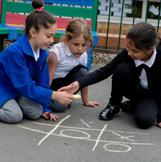
• Preparation for Adulthood
Our students, within the progression and functional pathways, have a timetabled PSHE session where we cover different topics which are under the focused areas of health and wellbeing, relationships and living in

Sharing Good Practice • Improving Quality & Raising Standards 22
PSHE is an important focus throughout our school day where we encourage the development of hygiene through teeth brushing, hand washing and personal care. We also promote sharing, playing and working collaboratively with peers and adults which set our students up with skills that will prepare them with skills that can be transferred to at home and preparing them for adulthood.
Every year we have a mental health and wellbeing event day since the launch of our policy in 2017. As a whole school, we celebrate positivity and encourage ways to promote the 5 ways to wellbeing; connect, give, be active, take notice and keep learning. These event days are fun and informative and provide pupils with activities that can be used at home as well as in school to promote positive wellbeing for all.
of safety and life skills including: money management, mental health well-being, road safety, river safety, dog safety etc. Life skills and aspirations are also woven into the curriculum and, throughout the year, numerous professionals and skilled workers attend school to speak with the children.
• Evidencing SMSC
SMSC at Oakhill is evidenced through year group SMSC books. Within these books, class teachers record evidence of any SMSC that has taken place through the taught, or the wider curriculum. Ofsted (2019) felt that these were a very good way to clearly evidence the SMSC that was taking place within the school.
• Jigsaw
Oakhill Primary School
• Aspirations / Life Skills
At Oakhill we hold a life skills week at the end of each academic year. During this week children take part in workshops and listen to visitors talk about numerous aspects

The Jigsaw curriculum is used at Oakhill. This covers all aspects of PSHE, including RSE, and incorporates SMSC and British Values throughout. The Jigsaw curriculum takes a mindful approach to PSHE, encouraging children to be in the moment and to observe their thoughts and feelings as they happen. Within each session, there is time for children to sit through a guided meditation to aid this.

Sharing Good Practice • Improving Quality & Raising Standards 23
Etruscan Primary School
• Curriculum Design, History Leadership
National requirements for all foundation subjects are mapped out as a whole school and then individual year groups plan the curriculum for their pupils accordingly. We follow the Learning Challenge Curriculum, which is a topic based curriculum. This enables our children to make connections between subjects and means that they can practise and apply the skills they learn across different subjects. The Learning Challenge Curriculum has either History or Geography as its main ‘driver’ and is presented to the children as one main overarching question with a different question to answer each week. Skills for all other foundation subjects are used as enhancers for the main topic. The curriculum focusses on the development of the knowledge and skills, making clear links between prior learning. Our history lead can provide pedagogical support.
Lessons are taught using a mixture of teaching strategies with teaching in foundation subjects being mainly ‘workshop’ based to ensure all children are active, engaged, enthusiastic learners. This is achieved by using a wide range of strategies which focus on creating independent learners.


History and Geography
Forest Park Primary School
History teaching at Forest Park follows our belief that all children should have access to and receive a high quality broad and balanced curriculum regardless of ability, additional needs, race, gender or background.
A high-quality history education will help pupils prepare for life as citizens of 21st century Britain. It is through knowledge of how our society came to be that we can successfully prepare for the future. History helps pupils to understand the complexity of people’s lives, the process of change, the diversity of societies and relationships between different groups, as well as their own identity and the challenges of their time.
At Forest Park, we have recently reviewed and developed our curriculum to be relevant to the world we live in: our school, our community and our local area. Through our curriculum, children will learn about the rich history of Britain from the Stone Age through to the Viking era along with key events in our history beyond 1066 and their impact on our local area. This provides wonderful opportunities to investigate British Values and how they, along with our society, have been shaped. In their learning, children will also investigate the history
of societies from the wider world to help promote respect and tolerance for other cultures and beliefs.

The geography curriculum at Forest Park has been designed to help children to develop their knowledge, skills and understanding of their local area and the wider world. The curriculum has been created to be relevant to the children’s own lives and experiences of the world. The diverse topics allow children to explore different aspects of geography from locational knowledge to human and physical geography. We aim to inspire and motivate children by encouraging them to understand environmental issues that affect the world they live in. We provide children with opportunities to visit and explore different places to help them to develop their geographical skills and broaden their experiences.
Our use of Knowledge Organisers across the school provides a bedrock of key knowledge which can be built on in teaching, and allows us to spend time developing the skills needed to be historians and geographers. This will equip the pupils to become more independent learners, allowing them to develop skills of asking perceptive and relevant questions, thinking critically, weighing evidence, sifting arguments, and developing perspective and judgement.
Sharing Good Practice • Improving Quality & Raising Standards 24
Oakhill Primary School
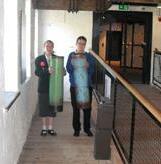

The history and geography curriculums at Oakhill have been ambitiously designed to meet the needs of our children and incorporate a revisit and review section in all lessons to ensure that knowledge and understanding is recalled frequently, helping children to build schema.

In history children cover a wide variety of historical eras, and all year groups complete a unit on local history. Strands run through each of the history topics to enable children to make comparisons across historical eras and teaching takes on a facilitation role, encouraging children to find out for themselves through reading, discussion, enquiry and questioning.
In geography, units on map work and geographical locational knowledge are central to our curriculum and ensure that previous knowledge and understanding is regularly recalled and built upon. In addition to these units, each year group completes a local geography unit looking at one of the towns of Stoke-on-Trent and children in KS2 look at an area of France.
Other units of work link to the history curriculum.
To book on any of the above or to arrange a classroom observation please contact the lead person identified on pages 2 and 3.
Sharing Good Practice • Improving Quality & Raising Standards 25
Abbey Hulton Primary School
• RE Subject Leadership
At Abbey Hulton Primary School
we value and respect all faiths and cultures. Come and see our Faith and Culture calendar, which displays the religious events we celebrate in our school and log in our Faith and Culture journal. Our calendar is also home to our Faith Boxes where sacred texts and artefacts are stored for Islam, Buddhism, Hinduism, Christianity and Judaism should you wish to have a look or share our resources.
Forest Park Primary School
At Forest Park RE is taught in a way which promotes and reflects the diversity of our school community. Whilst we still use the Agreed Stoke Syllabus to ensure a broad and varied RE coverage which provides clear and challenging learning outcomes, our planning has been significantly adapted to better meet the needs and interests of the pupils we teach.
and learning that have been completed are then shared with other pupils and families through year group assemblies and whole school craft competitions, which continue to celebrate the diversity within our school community.
within and between communities, promoting social inclusion and combat prejudice and discrimination.
This academic year we have moved into class scrapbooks to record our teaching of RE and would love to share our children’s thoughts, opinions and religious work with you from our beautiful journals.
We have strong links with Breathe City Church and St John’s Church in our local area. Should you require any Christian visiting speakers at your school, please contact our RE subject leader. We have fantastic detailed knowledge organisers for the faiths listed above in both a Key Stage 1 and Key Stage 2 format on our school website.
In order to provide the children with an extensive RE curriculum we have decided that each year group will study one key religion each year. This approach allows the pupils to fully engage within their chosen religion to gain a deep understanding and broader knowledge. Year after year the children are then able to look at similarities and differences between different religions building on their prior knowledge and also reflecting on their personal beliefs.
We also believe in celebrating different key religious festivals. Our children enjoy celebrating events such as Christmas, Easter, Eid and Diwali, our celebrations allow children to experience these festivals and celebrations by being involved in activities such as food tasting, craft activities and dressing in traditional clothing. The events, festivals
St Mark’s CE Primary
At St Mark’s CE Primary School, the teaching of Religious Education (R.E.) plays an important role in defining the school’s distinctive Christian character. As a Church of England school, R.E. is a regarded core subject within the school’s curriculum and therefore must be taught weekly. To enhance the teaching and learning within R.E., the school bases its provision using the Understanding Christianity scheme of work.
Religious Education contributes to other areas of the curriculum and plays an important part of the wider programme of spiritual, moral, social and cultural (SMSC) development. It also provides a positive contribution to enhancing creativity and enjoyment and ensure the well-being of all pupils.
The school fosters an accurate and increasing understanding of world religions and worldviews. Over time, children are able to consider the impact and connection that Christianity has on Britain’s cultural heritage and the lives of people worldwide. Children also learn to appreciate the faith of others and develop a deeper understanding of their own ideas and beliefs. These outcomes contribute to harmonious relationships
An act of worship takes place each day and are based on the school values of RESPECT and the SEAL theme for each half term. The children lead classroom worship every other week. At our main primary school site, we have a room set aside for prayer and reflection - The Rainbow Room. The room is inclusive and may be used by people of all faiths or those with no faith. Children and adults are welcome to use the room for their own prayer and reflection or to simply have some quiet time.
In 2016, St Mark’s had a statutory SIAMS (Statutory Inspection of Anglican and Methodist Schools) inspection and the school was judged to be outstanding.
Sharing Good Practice • Improving Quality & Raising Standards 26
RE
Music
Forest Park Primary School
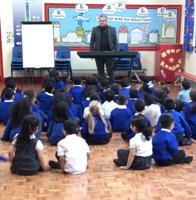
We have been very fortunate in our school with the amount of Music provision our children have received for many years, both curriculum based and through extracurricular clubs. Our bespoke curriculum ensures that our children are immersed in a broad range of Musical genres and experiences, aimed to create and foster a real love of Music. Children in Key Stage 2 have the opportunity to learn an instrument, taught by the City Music Service, and we are excited to broaden the range of instruments on offer in the coming year.
A Songbirds club runs weekly for children in Key Stage 1 and a Key Stage 2 Choir for upper school children, both of which provide the exciting opportunity for children to perform in a concert at the Victoria Hall each Year.
A Recorder Club is held for children in Year 5 and Year 6 in preparation for an annual Recorder Festival at the Victoria Hall and the children have valued these opportunities to perform alongside other schools, as well as performing their very own solo. Music underpins much of the curriculum provision in the Foundation stage at Forest Park and singing is an embedded part of our provision. Children are encouraged to explore their senses
through singing, dancing and percussion instruments, as well as making and exploring sounds using everyday objects.
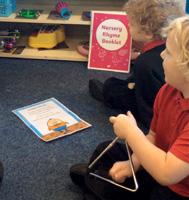
At Forest Park, we are extremely well resourced and we strive to provide the children with a broad diet of Musical experiences. Music builds self-esteem and boosts wellbeing, as well as encouraging teamwork and a sense of unity, creating a cultural harmony within our school.

Sharing Good Practice • Improving Quality & Raising Standards 27
EAL Support
Forest Park Primary School
At Forest Park we have higher than average EAL and mobility. We are well prepared for arrivals and departures of children, ensuring that staff and fellow pupils are supported through transitions within the class community. We are a diverse school, with over 35 languages.

Our parents are supportive of each other and when new families arrive from their home countries, they are made to feel welcome. We have experienced staff in school who gently guide new families through the process of induction, settling into new routines and making friends. New to English children have a structured induction, where they are paired up with a buddy to support them for the first few days. EAL support staff work alongside new arrivals both in intervention groups and in their class, ensuring a smooth and settled start to their education with us.
St Mark’s CE Primary School
Across the school, we use a variety of resources and strategies to help support and teach those children who speak English as an additional language (EAL).


These range from picture cues, the teaching of vocabulary and daily interventions such as Word Aware. We also have our Sunbeams provision, which is a nurture group for newly arrived pupils in years 1 to 6. Sunbeams sessions are delivered by members of the Inclusion Team. These sessions support the children to make friendships, become familiar with their new school and support their initial language development. On entry to the school, all children are provided with a selfhelp pack, which they are able to use in class to help support them in their learning.
The school also provides EAL training for schools across the city and for trainee teachers. This training looks at the core concepts around the teaching of pupils who speak English as an additional language and resources that can be used by class teachers.
We use the Bell Foundation Assessment Framework to track the progress of the new to English pupils.

Sharing Good Practice • Improving Quality & Raising Standards 28
Abbey Hulton Primary School
At Abbey Hulton Primary School
the six School Games values of Passion, Self-Belief, Respect, Honesty, Determination and Teamwork are promoted within our delivery of Physical Education and are integral to the wider curriculum.
We are proud to have secured ‘Gold’ for three years running in the National School Games scheme which keeps competitive sports at the heart of schools and provides more young children with opportunities to compete and achieve their personal bests. All pupils in our school are encouraged to take part in competitions and extracurricular physical activity and we target and track this to ensure inclusive practices.
Developing positive mental and physical wellbeing in our pupils is central to our intent within the curriculum and this is particularly central to the subject. We know the overwhelming benefits that physical activity can have on our pupils and we currently dedicate two hours per week to the teaching of PE. Purposeful links are made between the curriculum objectives for PE and the new statutory guidance on promoting physical health and mental wellbeing.
Forest Park Primary School
At Forest Park Primary School Physical Education focuses on the physical, mental and social well-being and development of all our pupils. Every class has both an indoor focus and an outdoor focus, running alongside one another for one term. Research demonstrates that children make accelerated progress with skill development and application when a strand of PE is taught for at least 12 weeks (before moving onto the next strand too quickly).
Throughout each phase there is coverage of all strands of PE, enabling children to access a wide variety of sports as they progress through the school. Key skills have been carefully broken down and show clear progression across each year group. EYFS use Sports Xplorers which provides focus and specifically designed sequence of lessons.
Assessment in physical education is recorded via videos of the children in action, end of term proformas, annotated end of unit plans and pupil voice. Each term learning is geared up to a sporting festival or competition whereby the children have the opportunity to take part in competitive competition alongside their peers, utilising the skills learnt.
PEA wide range of after school clubs are delivered by staff and outdoor agencies, again targeted towards competition or a fun festival.
Watermill School
• Physical Education
Kemball School and Watermill School
• Rebound
This package aims to target individual physiotherapy needs through the therapeutic use of trampoline. Providing a package of support for children with physical difficulties enabling them to access their PE curriculum, raise self-esteem and confidence. Specialist teachers will observe pupils within their own setting initially and produce a personalised 6 week programme. Staff are experienced using the Winstrada Award Scheme where pupils will gain certificates and badges that are nationally recognised. (Costing will apply)
Watermill School has a large gym, a physical therapy gym, MUGA and a hydro pool. We have a specialist PE Teacher who teaches across the PE disciplines including trampoline.
We offer a range of physical therapies and approaches to PE to meet the needs of children with physical needs and complex behaviours. Please get in touch if you would like to discuss curriculum development for children working below age related expectations, access to specialist facilities or specific PE support or CPD for staff, access to Rebound.
Sharing Good Practice • Improving Quality & Raising Standards 29
Abbey Hulton Primary School
• Nurture Group

Acorn Wood Nurture Group at Abbey Hulton Primary School is a focused small group intervention of approximately 8 children. These are children who may need more small group support in a nurturing environment. Our children attend our group for part of the day, but remain an active part of their main class group. The intervention lasts between 2 and 4 terms and has long term benefits.
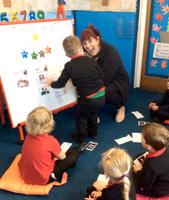
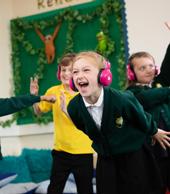
Children have the opportunity to develop relationships with staff and other children in a consistent, predictable environment, where they can build self-esteem, confidence and independence. Nurture groups give children the opportunity to revisit early missed nurturing experiences, giving them the social and emotional skills to do well at school and get on well with their peers. Children develop their resilience and their capacity to deal with everyday events. Prior to entering the nurture group, staff use the Boxall Profile and a Social and Emotional Assessment to assess children. The results of these assessments are used to set targets for children. These targets are shared with parents and class teachers. Progress towards targets is assessed termly.
Etruscan Primary School
Etruscan Primary School strives to provide an inclusive education for all children. Etruscan is a mainstream school which also provides education for children with special education needs and disabilities. We strive to raise the aspirations and expectations for all pupils including those with special educational needs and disabilities. The school aims to provide all children with a broad and balanced curriculum. All teachers are able to identify and provide for pupils with SEN. Interventions are carefully planned and pre and post tests are used to monitor the impact on learning. The progress and attainment of pupils is monitored at pupil progress meetings and in SEN Review meetings each term.
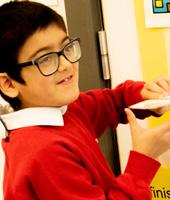
support the children and fill in the vital gaps they are missing in their development. Read write Inc phonics is used to teach phonics and reading in EYFS and KS1. Children in KS2 with SEN (if applicable) will also continue to use this method until they catch up. Children are assessed every 6 weeks and put into targeted groups. Children who are behind or who are not progressing are given daily 1:1 tuition.
The SENCo has gained the statutory qualification, ‘National Award for Special Educational Needs Co-ordination’ and leads the Inclusion Team. The Inclusion team have had a variety of training and are experienced in working with children with ASD, physical difficulties, ADHD, social and emotional needs, communication and language disorders and dyslexia among others. A number of staff have been trained in Supporting Children with Mental Health difficulties, Supporting Pupils with Behaviour that Challenges and in counselling skills.
A nurture group has been established which supports children with ASD and SEMH. Boxall profiles are used to set targets and plan how to
Forest Park Primary School
At Forest Park, we pride ourselves on our inclusive family community, where we welcome all children regardless of need. We have staff trained in a variety of SEN areas, maximising our skill base. We have close working partnerships with external agencies, such as speech and language and occupational therapy. Our children thrive, making progress at the rate best suited to them. Where children have difficulties, we call on our close relationships with parents and carers to reach the quickest and most appropriate solution. We engage with the local authority to support our children through specialist teachers at SEND services and the educational psychology team. Our children with additional needs are happy, they achieve and engage in a fulfilling and meaningful curriculum.
Sharing Good Practice • Improving Quality & Raising Standards 30
SEND
Kemball School
• Sensory Diet
Sensory Diet is an individually designed plan of varying activities which can reduce the impact of people who struggle with processing their senses.
Sensory Circuit is a carefully selected series of sensory activities (stimulating or calming) which can better prepare a person to cope with sensory processing challenges.
• Who Needs Sensory Support?
Typically, a pupil who requires sensory support is often struggling to function in a typical classroom or school environment. They might have particular dislikes of textures or tastes and struggle to complete simple activities if it requires exploring the unfamiliar. Their stimulation levels might be effected by noise or light and concentration levels become poor.
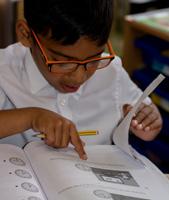
A pupil might struggle to sit for long periods of time or feel the need walk around the classroom or swing on their chair. They might have extremely low energy levels and find the basic activities difficult to complete. A pupil might have a preference for heavy or light pressure and prefer enclosed or wide open spaces. A lot of these actions could be deemed as ‘poor behaviour’ however, for pupils who have a sensory need, these actions are requirements and not choices.
• What Support is Available?
We can offer support with identifying sensory requirements and to support in developing staff awareness around Sensory Processing Disorders and sensory needs for all types of children.
• Tour of our school and facilities including sensory light rooms, sensory diet/circuit room
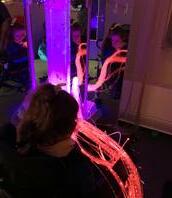
• Guidance on sensory equipment and resources
• Observation of Sensory Diet in practice
• Observation in a classroom environment
• Development of awareness for staff of differing sensory needs
• Sensory strategies
• Professional guidance from qualified OT’s whom we would recommend
• Light Rooms
We have 2 specialist light room environments within the school, come and observe how we incorporate them into the teaching day. Inclusion sessions are available.
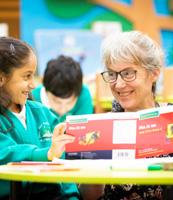
• Soft Play

We have a soft play environment within the school, come and observe how we use incorporate them into the teaching day. Inclusion sessions are available.
• Theraplay
Work based Theraplay activities guide practitioners/parents and children through playful, fun games, developmentally challenging activities and tender, nurturing activities. The very acts of engaging with each other in this way helps practitioners/parents to regulate their child’s behaviour and communicate love, joy and safety to the child. It helps children feel secure, cared for, connected and worthy. Theraplay will be delivered as a 6 week programme with each session lasting an hour. Come and observe Theraplay being initially carried out at Kemball and chat to staff about the package.
(Costings will apply).
• Hydrotherapy Pool
We are able to offer hydrotherapy swim sessions individually or by joining a class with their weekly swim as part of an inclusion package.
• Behaviour
As a Special School, we are aware of the challenges that pupils with SLD face each day and understand the difficulties of managing these behaviours. We do not identify these challenges as ‘bad behaviours’ and always strive to support in finding steps towards a solution. As you will be aware from the other Outreach opportunities which Kemball offers, there are lots of strategies that can be successfully put in place such as TEACCH stations and sensory support which can
Sharing Good Practice • Improving Quality & Raising Standards 31
have a huge impact on the outcomes of behaviour of our pupils. These strategies might include a clear Behaviour in place for the staff and then a support plan for the pupil in the class to identify possible triggers or issues. This means a process to deal with initial triggers can be put in place before they develop. We can offer advice on challenging physical behaviour to noncompliance.
•
How can we support?
We can offer support on a range of different behaviour management strategies and identify areas in practise or environment which might have contributing factors.
• SMART targets towards behaviour goals
• Creating a Behaviour Plan
• Observation of behaviour practise in a Special School

• Observation of practise in school
• Report and strategies to put in place
• Advice on resources, strategies
• Positive behaviour management practises
• Guidance on appropriate CPD for safe handling
Oakhill Primary School
• Family and Pupil Support Team
• Behaviour
•
SEN Data and Assessment in Mainstream
Our tracking system incorporates data that provides a profile of need at any given point and tracks progress in specific areas of need such as SEMH and Communication and Interaction.
This data provides information about small steps progress to complement overall assessment.
• SEMH
With a dedicated Family and Pupil Support Team working closely with the SENCo, pupils with SEMH needs have holistic provision which covers every aspect of school life. Teachers and support staff are experienced in Emotion Coaching and providing a nurturing environment. SEMH needs are tracked through the use of the Boxall Profile yearly or at a point of change in presentation.
• Record Keeping
Record keeping for pupils is robust and the use of CPOMS for tracking safeguarding low level needs and SEND needs ensures that when required, a full history is available. This supports the application of the graduated response and effective working with outside agencies.
The Family and Pupil Support Team work with families and pupils to improve access to school, overall well-beings and keeping children safe. The team works extensively with outside agencies and develops strong working relationships with parents, including offering Sparkles and Family Links programmes. The team works closely with the SENCo where appropriate to ensure that where SEN is a factor, support is designed accordingly.
Matt Coupe is an SLE across the city for Behaviour and is one of 4 MAPA trainers. We offer behaviour support via the Outreach Brochure.
• Sensory Profiles
Should you wish to seek advice around sensory processing difficulties, you are welcome to speak to our Sensory Lead about classroom assessments and profiles to support you with identifying triggers and strategies to support in your setting.
Watermill School
• Facilities
We have purpose built soft play and sensory integration rooms, hydrotherapy pool and a physiotherapy gym where Rebound is delivered by specially trained Rebound Coaches, alongside physical management programmes and PE. We will soon have a ‘4D System’ built into our performance room, that will provide immersive experiences to all pupils at a range of abilities. Should you wish to visit or discuss access to any of these facilities, please get in touch.
Sharing Good Practice • Improving Quality & Raising Standards 32
SEND
Abbey Hulton Primary School
• Nuffield Early Language Intervention (NELI)
The Nuffield Early Language Intervention (NELI) is an evidence-based oral language intervention for children in Nursery and Reception who show weakness in their oral language skills and who are therefore at risk of experiencing difficulty with reading. The intervention was developed by a team from the University of York, who subsequently carried out a randomised control trial in 15 schools and feeder-nurseries across Yorkshire.
After 30 weeks, the children who had received the intervention had improved expressive language skills, including the use of vocabulary and grammar. Their letter-sound knowledge and spelling also improved, indicating the foundations of phonics were in place.
The programme is delivered to small groups by an experienced Senior Early Years Practitioner who has been fully trained in the Nuffield Programme.
EYFS
The programme has been successfully delivered at Abbey Hulton for several years. All children are screened using the LA “Early Communication Screen” and are then grouped for the intervention. The Nuffield Intervention is delivered over 10 weeks in Nursery, enabling one group per term to access the intervention. It is delivered over 20 weeks in Reception.
Etruscan Primary School
• Continuous Provision
We currently provide a 2-year rolling program of topics throughout the Nursery and Reception classes and parents are encouraged to support their children with their learning. We aim to incorporate the children’s interests and ideas within the planning to provide personalised learning experiences.


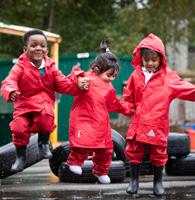
We value our parent partnership with an open-door policy and a clearly set out induction procedure which has the needs of the child at its heart. We have agreed staff/child ratios which ensure that the needs of each child are met both academically and emotionally, helping to develop each child’s confidence and independence. We provide a rich variety of experiences that consider the ‘whole child’, celebrating early childhood development as a unique stage of learning. We have welcoming, child
friendly and stimulating indoor and outdoor areas. Our Outdoor area is shared across all the foundation stage classes so that all FS children can learn together. Routines are established so that children begin to anticipate and feel confident to take the next step in their education. Continuous provision allows children to learn through play, practising and consolidating skills and knowledge taught during whole class and small group work. Children have the confidence to explore and are challenged to be active learners and to take control of their own learning.
Forest Park Primary School
The quote ‘play is the highest form of research’ by Albert Einstein, underpins our Early Years ethos at Forest Park. Wellplanned and purposeful learning experiences are provided daily, encouraging our young children to learn effectively through play. Learning takes place in our fabulous provision areas both inside and outside of the classroom, where children are encouraged to drive their own learning forward through our ‘planning in the moment’ approach. Wellplanned play is crucial to children’s learning in the Early Years and in this way, learning can be both challenging and fun!
Sharing Good Practice • Improving Quality & Raising Standards 33
EYFS
Forest Park children follow the Read Write Inc. scheme to support early reading and writing and we work hard to foster a love of reading in our Foundation Stage through quality story times and stimulating and exciting reading areas. We aim to provide children with firm mathematical foundations through interactive and practical activities both inside and outside of the classroom. Our children interact with quality resources through our continuous provision, which encourages them to make independent choices and celebrates child initiated learning.
We believe that happy children will become willing and able learners and we therefore place significant importance on the wellbeing and emotional growth of our children. We also work hard to develop our children’s early language skills, providing a range of activities to support speech and language along with broadening our children’s vocabulary. Our children are constantly encountering new experiences, which they try to make sense of and understand. As they do so, they ask questions and develop their skills and confidence, building on what they already know, along with developing their communication skills.
We celebrate similarities and differences between ourselves and others, learning about what makes us special and unique.
We develop our sense of identity as individuals and within our friendships and we work hard to create a sense of belonging and community. Above all, the Foundation Stage is about our children having fun, playing and learning together as they develop their relationships, confidence and self-esteem.

• S&L in EYFS
Children in our EYFS unit receive specialist input from trained staff to work on their specific next steps, as identified by Sp&L therapists.
Our staff are highly knowledgeable in these programmes and tailor them appropriately in liaison with outside agencies. This has reduced the need for some children to attend out-of-school appointments and decreased the risk of children being discharged through non-attendance.
Oakhill Primary School
• Talk Boost in EYFS
Children in Nursery and Reception are screened for appropriate language development on entry. Children who are not working at the expected level for their age are selected to receive Early Talk Boost (Nursery) or Talk Boost (Reception) interventions. These small groups work on a range of strategies with a qualified and fully trained member of staff to improve their speech and language levels, and this has proved successful.
• Continuous Provision
Our EYFS unit is set up into defined areas with resources and apparatus continuously available for children, in the same place each day. This allows children the opportunity to follow their own interests, rehearse, practise and apply skills, and test and apply their knowledge. Continuous provision provides a wide variety of learning opportunities in each area, which is enhanced through additional resources or provocations, that reflect the children’s interest, motivations, next steps or link to current themes of learning.
Sharing Good Practice • Improving Quality & Raising Standards 34
Forest School
• EYFS Parental Engagement


Parents and families are encouraged to bring children into class during the staggered start to the day, making them feel welcome and at ease with staff. We also provide parents and families many opportunities to engage with their child’s learning and become involved in school life, from ‘Learn with me’ sessions, demonstration sessions, to fun craft afternoons. This approach has been successful in engaging our parents with school in a more positive way, allowing parents opportunity to discuss challenges and successes and/or to share any concerns or worries in a less formal way.
Forest School is a child-centred inspirational learning process, that offers opportunities for holistic growth through regular sessions. It is a long-term program that supports play, exploration and supported risk taking. It develops confidence and self-esteem through learner inspired, hands-on experiences in a natural setting.
Forest Schools at Oakhill and Forest Park are run by Level 3 qualified Forest School Leaders, and give children the opportunity to develop social, physical, and practical skills in their outdoor areas.
The sessions develop a connection to the natural environment, promote wellbeing, and help participants to become healthy, resilient, creative and independent learners.

Sharing Good Practice • Improving Quality & Raising Standards 35
Schools Directory
• EYFS
• Science
Michelle Dickinson - mdickinson4@etruscan.org.uk
Eleri Homles - eholmes@kemballschool.co.uk
Jo Peddie - jbaddeley4@watermillschool.co.uk
Nicola Waite - nwaite@abbeyhultonprimary.org.uk
Matt Hales - mhales@oakhillprimaryschool.org.uk
Charlotte Barber - cbarber@forestpark.org.uk
Rebecca Nicholls - rstevenson@stmarkssch.org
Lou Bradbury - lbradbury@tbnursery.sch.org
• English
Karla Thorley - kthorley@etruscan.org.uk
Hannah Phillips - hphillips@kemballschool.co.uk
Jen Lomas - jlomas@watermillschool.co.uk
Charlotte Pearse - cpearse3@abbeyhultonprimary.org.uk
Katie Heath - kheath@oakhillprimaryschool.org.uk
Kate Stubbs / Rachel Harrington - kstubbs@forestpark.org.uk / rharrington@forestpark.org.uk
Simone Colby - scolby@stmarkssch.org
Rebecca Nicholls - rstevenson@stmarkssch.org
• Mathematics
Lianne Pickering - lpickering2@etruscan.org.uk
Danielle Ratcliffe - dratcliffe@kemballschool.co.uk
Natalie Williams - nwilliams@watermillschool.co.uk
Gemma Coward - gcoward@abbeyhultonprimary.org.uk
Pete Dawes - pdawes@oakhillprimaryschool.org.uk
Sophie Cox / Helen Campbell - scox@forestpark.org.uk / hcampbell@forestpark.org.uk
Sarah Goodwin - staylor@stmarkssch.org
Jen Smith - jsmith@etruscan.org.uk
Katherine Beestone - kbeestone@kemballschool.co.uk
Joy Cartlidge - (Secondary specialist) jcartlidge@watermillschool.co.uk
Stacey Amison (Primary lead) - SAmison@watermillschool.co.uk
Gemma Coward - gcoward@abbeyhultonprimary.org.uk
Olivia Brayford - obrayford@oakhillprimaryschool.org.uk
Alex Hymas - ahymas@forestpark.org.uk
Catherine Koripilli - cgoring@stmarkssch.org
• Computing
Phill Smith - psmith2@etruscan.org.uk
Kathy Walsh - Kwalsh52@kemballschool.co.uk
Laurence Greenhalgh - lgreenhalgh@watermillschool.co.uk
Hannah Robinson - hrobinson@abbeyhultonprimary.org.uk
Alice Warner - awarner@oakhillprimaryschool.org.uk
Charlotte Harper - charper@forestpark.org.uk
Mercy Wallace - mshay@stmarkssch.org
•
History
Laura Tranter - lsmith11@etruscan.org.uk
Stephanie Arnold - Sarnold@kemballschool.co.uk
Karl Stubbs - kstubbs@watermillschool.co.uk
Joe Perkin - jperkin@abbeyhultonprimary.org.uk
Emily Warburton - esmith@oakhillprimaryschool.org.uk
Caroline Laidlaw - claidlaw@forestpark.org.uk
Naheed Akhtar - nakhtar@stmarkssch.org
Sharing Good Practice • Improving Quality & Raising Standards 36
• Geography
Kate Pine – kpine@etruscan.org.uk
Katy Errington - klock@kemballschool.co.uk
Matthew Wright - mwright@watermillschool.co.uk
Laura Hassall - lhassall@abbeyhultonprimary.org.uk
Neil Warren - nwarren@oakhillprimaryschool.org.uk
Shahida Begum - shbegum@forestpark.org.uk
Katie Colclough - kpickerill1@stmarkssch.org
• RE
Nic Kirkham / Emily Edwards - nkirkham@etruscan.org.uk / eedwards@etruscan.org.uk
Cath Hulse - chulse@kemballschool.co.uk
Hannah Hancock - HHancock@watermillschool.co.uk
Sarah Heming - sheming@abbeyhultonprimary.org.uk
Luthfa Shabir - lshabir@oakhillprimaryschool.org.uk
Emily Martin - emartin@forestpark.org.uk
Andrew Jarvis - ajarvis@stmarkssch.org
• PHSE
Nic Kirkham - nkirkham@etruscan.org.uk
Madeline Billington - mbillington@kemballschool.co.uk
Matt Coupe - mcoupe@watermillschool.co.uk
Sarah Heming - sheming@abbeyhultonprimary.org.uk
Emma Palmer - epalmer@oakhillprimaryschool.org.uk
Kate Taylor - ktaylor@forestpark.org.uk
Rhiann Curran - rcurran@stmarkssch.org
•
Music
Chris Burton - cburton@etruscan.org.uk
Lorraine Painter - Lpainter1@kemballschool.co.uk
Lisa Weatherson - lweatherson@watermillschool.co.uk
Dominne Plimmer - dplimmer@abbeyhultonprimary.org.uk
Melanie Fox-Crowther - mfcrowther@oakhillprimaryschool.org.uk
Rachel Dumigan - rdumigan@forestpark.org.uk
Grace Etherington - getherington@stmarkssch.org
• Art
Laura Proffitt - ljones49@etruscan.org.uk
Jasmine Thorley - Jthorley@kemballschool.co.uk
Emma Harrington (secondary specialist) - eharrington@watermillschool.co.uk
Sarah Heming - sheming@abbeyhultonprimary.org.uk
Lisa Simpson - lsimpson@oakhillprimaryschool.org.uk
Amelia Naylor - anaylor@forestpark.org.uk
Jo Healey - jhealey@stmarkssch.org
• DT
Laura Grocott - lgrocott@etruscan.org.uk
Emma Harrington eharrington@watermillschool.co.uk
Laura Hassall - lhassall@abbeyhultonprimary.org.uk
Catherine Linley-Simon - csimon@oakhillprimaryschool.org.uk
Dawn Hulme - dhulme@forestpark.org.uk
Leanne Burton - lcarter9@stmarkssch.org
Ian Kelsall - ikelsall2@kemballschool.co.uk
Sharing Good Practice • Improving Quality & Raising Standards 37
• PE
Marc Hawkes - mhawkes@etruscan.org.uk
Ben Sutcliffe - bsutcliffe@kemballschool.co.uk
Paul Kirk - pkirk@watermillschool.co.uk
Nicola Waite - nwaite@abbeyhultonprimary.org.uk
Pete Dawes - pdawes@oakhillprimaryschool.org.uk
Laura Mulliner - lmulliner@forestpark.org.uk
Matthew Jones - mjones@stmarkssch.org
• Sensory Coordinator
Katie Hulme - khulme@watermillschool.co.uk
Emily Buttery - esheeran@kemballschool.co.uk
• Curriculum Leads
Laura Tranter - lsmith11@etruscan.org.uk
Charlotte Pearse - cpearse3@abbeyhultonprimary.org.uk
Sherin Vorajee - svorajee@forestpark.org.uk
Helen Smith - hsmith1@kemballschool..co.uk
Emma Harrington - eharrington@watermillschool.co.uk
Katie Hawthorne - kharris@oakhillprimaryschool.org.uk
Lee Nicholls - lnicholls@stmarkssch.org
Schools Directory
• Assessment Lead
Laura Tranter - lsmith11@etruscan.org.uk
Lisa Hughes - Lhughes21@kemballschool.co.uk
Emily Buttery – esheeran@kemballschool.co.uk
Helen Clayton - hclayton@watermillschool.co.uk
Charlotte Pearse - cpearse3@abbeyhultonprimary.org.uk
Steve Smith - ssmith@oakhillprimaryschool.org.uk
Sophie Cox - scox@forestpark.org.uk
Rebecca Nicholls - rstevenson@stmarkssch.org
• Attendance Lead
Sandra Clarke - sclarke@etruscan.org.uk
Kerrie Stockley - Kduncan@kemballschool.co.uk
Cath Bridgeman - cbridgeman@watermillschool.co.uk
Charlotte Pearse - cpearse3@abbeyhultonprimary.org.uk
Steve Smith - ssmith@oakhillprimaryschool.org.uk
Nicky Bloor - nbloor@forestpark.org.uk
Lee Nicholls - lnicholls@stmarkssch.org
• Safeguarding Lead
Jonathon May / Brigitta Beckett - jmay@watermillschool.co.uk / bbeckett@watermillschool.co.uk
Sandra Clarke - sclarke@etruscan.org.uk
Lisa Hughes / Helen Smith - Lhughes21@kemballschool.co.uk / hsmith1@kemballschool.co.uk
Charlotte Pearse - cpearse3@abbeyhultonprimary.org.uk
Jo Leach / Jo Somogy - jleach@oakhillprimaryschool.org.uk / jsomogy@oakhillprimaryschool.org.uk
Hayley Sutton - hsutton@forestpark.org.uk
Jodie Thomas - jthomas@stmarkssch.org
Sharing Good Practice • Improving Quality & Raising Standards 38
• Home School Link Worker
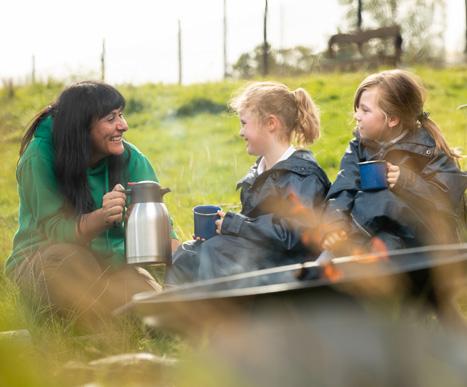
Mandy Cox - mcox@etruscan.org.uk
Rochelle Corbett - rcorbett@kemballschool.co.uk
Brigitta Beckett - bbeckett@watermillschool.co.uk
Sharon Ballantyne - sballantyne1@abbeyhultonprimary.org.uk
Emma Burton - eburton2@abbeyhultonprimary.org.uk
Angela Keay - akeay@oakhillprimaryschool.org.uk
Nicky Bloor/ Lucy Patten - nbloor@forestpark.org.uk / lpatten@forestpark.org.uk
Shabana Khan - skhan100@stmarkssch.org
• SENCO
Lisa Fox - lfox3@etruscan.org.uk
Lisa Hughes / Helen Smith - Lhughes21@kemballschool.co.uk / hsmith1@kemballschool.co.uk
Emma Harrington - eharrington@watermillschool.co.uk
Miranda Brookfield - mbrookfield@abbeyhultonprimary.org.uk
Linda Alliband - lalliband@oakhillprimaryschool.org.uk
Hayley Sutton - hsutton@forestpark.org.uk
Jodie Thomas - jthomas@stmarkssch.org
• (Pastoral) Behaviour and Safety Lead
Matthew Coupe - mcoupe@watermillschool.co.uk
Charlotte Pearse - cpearse3@abbeyhultonprimary.org.uk
Emily Buttery – esheeran@kemballschool.co.uk
Jo Somogy - jsomogy@oakhillprimaryschool.org.uk
• Business Managers
Janice Bytheway - jbytheway@watermillschool.co.uk
Andrea Trevor - atrevor@abbeyhultonprimary.org.uk
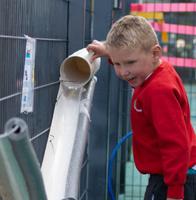
Stacy Sharman - ssharman@oakhillprimaryschool.org.uk
Carl Robinson - crobinson@forestpark.org.uk
Loriane Bloore - lbloore@stmarkssch.org
Julie Brookes - jbrookes4@etruscan.org.uk
Rachel Buckett - rbuckett@kemballschool.co.uk
• Careers
Linda Watkin - lwatkin@watermillschool.co.uk
Beth Davenport - bdavenport@forestpark.org.uk
Emily Buttery - esheeran@kemballschool.co.uk
The Orchard Community Trust would like to thank the Deputy/Assistant Heads Working Group for developing this brochure.
Sharing Good Practice • Improving Quality & Raising Standards 39
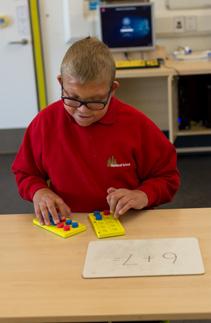
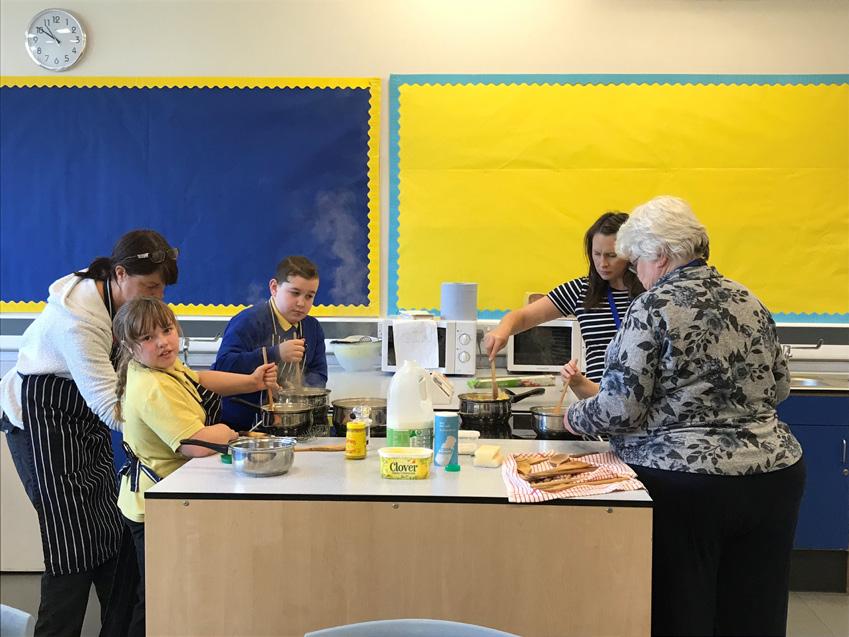
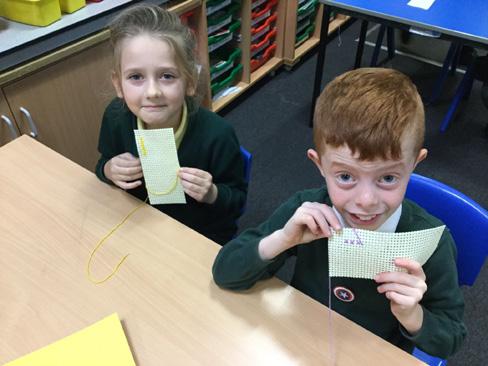
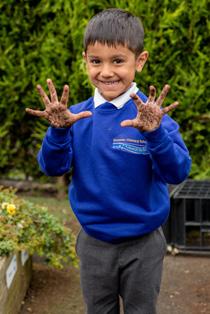
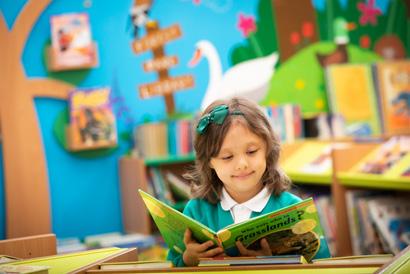
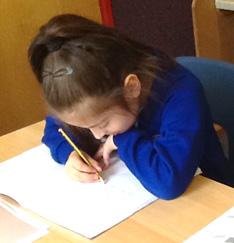
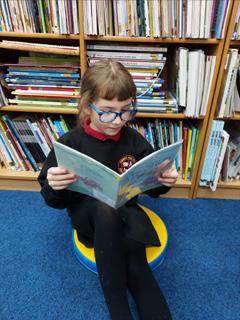






Sharing Good Practice • Improving Quality & Raising Standards 40 Turnhurst Road Stoke on Trent Staffordshire ST6 6JZ E: info@orchardct.org.uk T: 01782 883788














































































